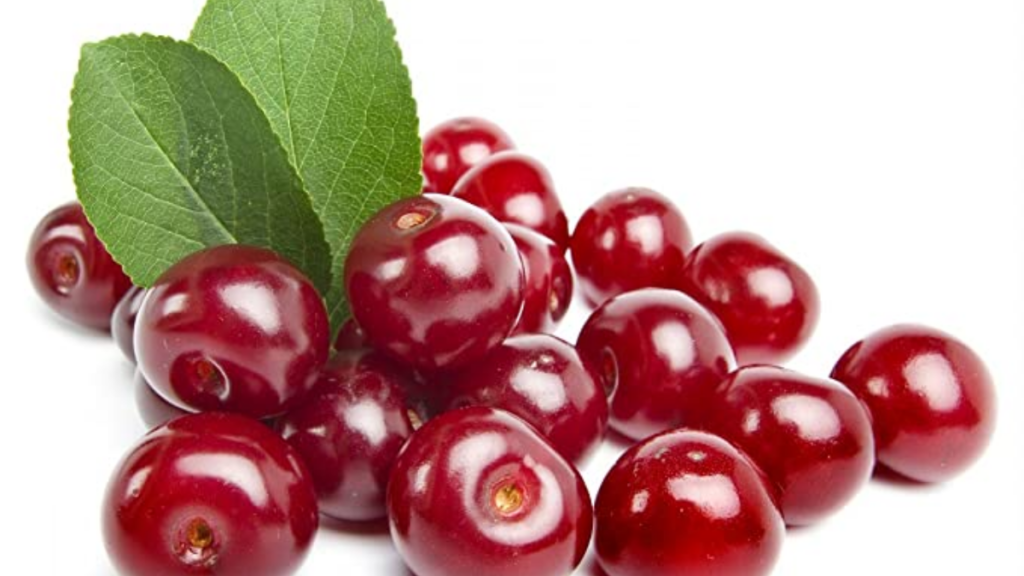Cherries, like all other fruits, are perishable. It rots, and if not properly stored, it rots quickly. So, if you’ve bought a bunch of cherries, you’ll want to know how long they last and, more importantly, how to keep them fresh. Your taste buds will be in ecstasy when you eat fresh cherries. However, there are various additional methods for preserving cherries. To know how to tell if cherry is gone bad, read further.
You can keep them fresh for up to a year if you freeze them. And if you dry or can the cherries, you’ll be able to enjoy a richer cherry flavor all year. Cherries are highly perishable, and even when refrigerated, they go wrong in approximately two weeks or less. Even 2-3 days of storage at room temperature, if not stored correctly, could result in mold development.
What Is Cherry?
Cherry is a fleshy drupe produced by numerous plants in the Prunus genus (stone fruit). Commercial cherries come from various species, including the sweet Prunus avium and the sour Prunus cerasus varieties. As in “ornamental cherry” or “cherry blossom,” the term “cherry” refers to the cherry tree and its wood, as well as almonds and other similarly similar blooming trees in the genus Prunus.
Although Prunus avium is commonly known as “wild cherry” in the British Isles, the term “wild cherry” can refer to any cherry species that thrive outside of cultivation. Cherries are helpful in the kitchen since they are versatile, low in calories, and tasty. Salads, stews, pies, desserts, and other foods can benefit. Cherries are a fruit that is frequently overlooked when considering what fruits to use in cooking. They have a strong sweet and sour flavor simultaneously, and it goes nicely with a wide variety of herbs and spices.
How To Tell If Cherry Is Gone Bad?
There are various ways to tell if the cherries stored in your pantry or the refrigerator have gone wrong. You don’t need to taste the cherries to find out, as these physical indications are enough to throw the cherries out.
Texture, Color, And Leakiness
Fresh cherries and high quality are lustrous, plump, and firm. Your cherries have gone rotten if they are squishy and mushy to the touch or if juices are oozing out of them. It’s also possible that wrinkled cherries aren’t fresh enough to consume. Also, keep an eye out for any discolored cherries. Visible alterations suggest that the cherries are no longer fresh and may have gone wrong.
Mold Growth
You should not consume cherries if they have white or black mold spots. The first place you should look for mold growth is on the stem.
Off Smell
Cherries that have a sour or fermented fragrance have begun to spoil. Alternatively, if the cherries emit an off or disagreeable odor, you should discard them immediately. If you sniff rotten cherries too closely, you may inhale mold, which can cause allergy or respiratory issues. So keep a safe space between you and the cherries when sniffing them.
Check For Maggots
Even if you’ve just bought home fresh cherries, keep this tip. Make sure to look inside a couple of cherries for white worms. If there are any, make sure to break them apart and inspect each one before eating or storing them.
How To Store Cherries?
It could be excruciatingly uncomfortable to throw away a bag of sour cherries. We’ve gathered some good cherry storage suggestions for you to avoid such scenarios.
Do Not Wash The Cherries Unless You’re Ready To Eat Them
Molds and spoilage microorganisms thrive in damp environments. So, if you’re not going to eat the cherries right away, don’t wash them.
Remove Bad Cherries Beforehand
Make sure to filter out any rotten cherries before keeping them. Moldy cherries may bring more pollutants and moisture to the batch, causing it to spoil. As a result, permanently remove the rotten cherries before storing their cherries.
Store The Cherries In The Refrigerator
Cherries prefer an excellent environment. The trick to keeping your cherry fresh for as long as possible is to keep them refrigerated. If you leave cherries out at room temperature, they will quickly lose their quality. Wrap your cherries in a plastic bag and place them in the refrigerator if you want to enjoy them for longer.
Dry The Cherries
If you’ve bought a lot of cherries or brought a bag full straight from the farm, drying them can be a great way to store them. It also doesn’t take much effort to dry cherries. Thoroughly clean the cherries, and remove the stems and seeds before drying the dried cherries.
Suppose you want to grab a handful and eat them without being disturbed. If you don’t mind the stems and seeds, you can dry the cherries without them. Finally, dry the cherries in the sun, an oven, or a dehydrator by layering them on a tray. You can soak your dried cherries in sugar syrup overnight before drying them if you want them to be moist.
Can The Cherries
Canning cherries are an excellent way to preserve them. Sugar syrup is the most frequent preserving cherries since sugar is an excellent preservative. Canned cherries that haven’t been opened can last for a year or two. Removing the stems and seeds from the cherries before preserving them could be a wise decision, as it will allow you to fit more cherries into a jar.
If you intend on canning cherries on your own, follow a thorough canning guide. The only disadvantage of preserving cherries this way is that they may become overly sweet if you preserve them in sugar syrup. However, if you have a sweet appetite, this storage method may be the best option.
What Are The Risk Of Consuming Expired Cherries?
Any food that has passed its expiration date carries a danger. The risk is significantly higher in the case of cherries, which are particularly perishable. You can eat frozen, dried, or canned cherries for a long time, even after the use-by date has passed. If you discover any symptoms of rotting, though, you should avoid them altogether. Spoilage bacteria produce a lot of toxins, which can make you sick. Moldy cherries aren’t any different. Molds create a toxin called mycotoxin, which is produced by molds. These chemicals have been linked to various respiratory problems and allergic reactions. So, if the cherries have mold patches on them or have a rotten odor, toss them out.
Can You Freeze Cherries?
Frozen cherries can survive up to a year in the freezer. If you enjoy smoothies, try adding some frozen cherries to the mix, blended or unblended, and see what happens. Furthermore, freezing cherries is a breeze. Wash the cherries carefully and remove the stems and seeds ahead of time so that you may use frozen cherries in your recipes right away. When the cherries are dehydrated, spread them out on a tray and place them in the freezer overnight for a few hours.
Collect the frozen cherries and place them in an airtight freezer container or a zip-lock bag. You can also freeze the cherries by submerging them in thick sugar syrup. The following method for freezing cherries is even more straightforward. Dust the cherries with powdered sugar and place them in the freezer. If you add sugar to the cherries before freezing them, they will last longer.
Conclusion
Cherries are ripe and ready to eat when you buy cherries, just like strawberries. You can either keep them on the counter or in the fridge when you get them home. If you plan on eating them the same day or the next day, the former is OK. Cherries should be refrigerated for longer preservation. If you store cherries properly, they can last an entire season. If you like fresh cherries, keep them refrigerated and eat them within a week. As a result, storage should never be a barrier to enjoying cherries, as they are delicious!

